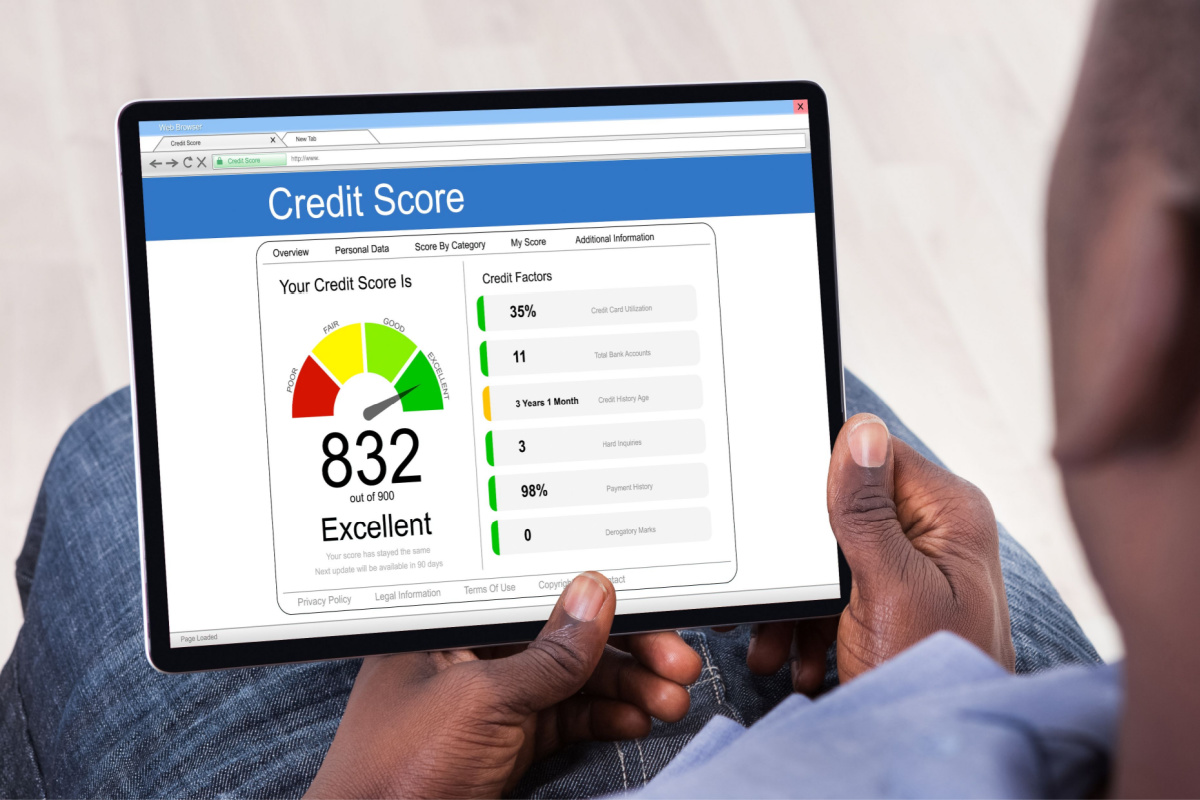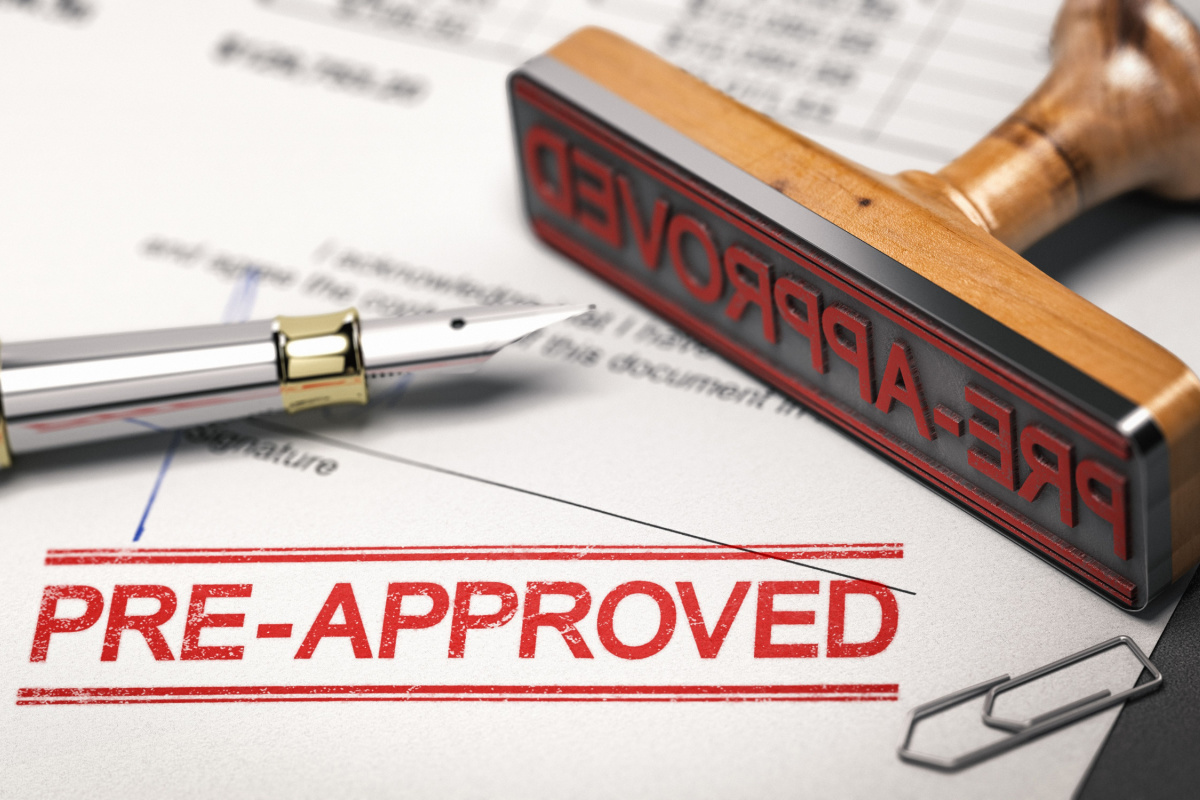How to Get a Car Loan
Buying a car is a significant investment that often requires considerable money. If you don't have enough cash to buy a vehicle outright, getting a car loan can be a viable option. But what do you need to finance a car?
In this article, we'll delve into how to get a car loan, from assessing your credit score to finding the right lender and getting preapproved. If you're a first-time car buyer or looking to upgrade your ride, this guide on how to get a car loan will help you navigate the process with ease.
Check Your Credit Score First
Lenders use your credit score to determine your creditworthiness and assess the risk level they are taking on by lending you money. Your credit score is calculated based on your credit history. The factors that influence your credit score include:
- Payment History (35%): Your history of making on-time or late payments on credit accounts, including loans and credit cards.
- Amounts Owed (30%): The amount of debt you currently owe on credit accounts and the amount of credit you use relative to your available limit.
- Length of Credit History (15%): The length of time you've had credit accounts open and the average age of those accounts.
- Credit Mix (10%): The variety of credit accounts you have, including credit cards, loans, and mortgages.
- New Credit (10%): The number of new credit accounts you've opened recently and the number of recent credit inquiries.
Before applying for a car loan, check your credit report to see if there are any issues. You can receive a free credit report from Equifax, Experian, and TransUnion once a year at AnnualCreditReport.com.
Your credit score significantly impacts your ability to secure an auto loan, the interest rate offered, and the loan terms. Lenders typically view borrowers with higher credit scores as less risky, increasing the likelihood of loan approval.
 Conversely, applicants with lower scores may have more difficulty when looking into how to take out a car loan. In some instances, they may need a co-signer who will guarantee repayment if the borrower defaults.
Conversely, applicants with lower scores may have more difficulty when looking into how to take out a car loan. In some instances, they may need a co-signer who will guarantee repayment if the borrower defaults.
A higher credit score usually results in more favorable loan terms and lower interest rates, which can decrease the total cost of the loan. Conversely, a lower credit score can result in less favorable loan terms, higher interest rates, and higher total loan costs over time.
If you have a damaged credit score, you can improve it before getting a car loan. You can pay off your credit card balances, make timely payments, and dispute errors on your credit reports.
By improving your credit score, you may boost your chance of financing your car and receiving favorable terms. However, it is worth noting that improving your credit score typically takes some time. It may take months or even years, depending on how damaged your score is.
Determine Your Auto Loan Budget
Before you start looking for a car and getting a car loan, you should know how much you can afford to borrow and how much you can comfortably pay back each month. To determine your auto loan budget take the following steps:
- Assess Your Finances: Take a close look at your monthly income and expenses to determine how much money you have available to put toward a car loan each month. Be sure to include all your monthly bills and expenses, such as rent, utilities, groceries, and other debt payments. Make sure to take into account savings as well.
- Calculate Your Debt-to-Income Ratio: Your debt-to-income (DTI) ratio measures how much of your income goes toward debt payments. To calculate your DTI ratio, divide your monthly debt payments by your gross monthly income. For example, if you have a monthly income of $5,000 and your monthly debt payments total $2,000, your DTI would be 40% ($2,000 divided by $5,000 multiplied by 100). This means 40% of your monthly income goes toward paying off your debts. Lenders typically prefer borrowers to have a DTI ratio below 43%.
- Consider Additional Costs: In addition to your car loan payment, you'll also need to factor in other costs, such as insurance, down payment, maintenance, and fuel. These costs can add up quickly, so be sure to budget for them as well.
- Use an Auto Loan Calculator: Online auto loan calculators can help you estimate your monthly payments based on the loan amount, interest rate, and loan term. Try different scenarios to see how different loan amounts and terms will impact your monthly payment. Here is a calculator you can use.
Check if You Are Preapproved
Preapproval means that a lender has reviewed your credit history and financial information and has determined the maximum amount they may be willing to lend you and at what interest rate. It is worth noting that preapproval typically does not harm credit as it is done through a soft credit check.
To apply for auto loan preapproval, you can start by researching lenders and their preapproval processes. Lenders may allow you to apply for preapproval online, over the phone, or in person. You will need to provide them with your income, employment history, and credit history.
 Note that preapproval does not guarantee you will receive the loan or the exact terms of the preapproval offer. However, preapproval can give you a good indication of your borrowing power and can help you avoid the disappointment of falling in love with a car beyond your lending limit.
Note that preapproval does not guarantee you will receive the loan or the exact terms of the preapproval offer. However, preapproval can give you a good indication of your borrowing power and can help you avoid the disappointment of falling in love with a car beyond your lending limit.
When shopping for an auto loan, keep in mind that the interest rate is only one factor to consider. You should also look at any fees, penalties, and other charges that may apply, as well as the loan term and monthly payments.
Research Loan Options From Multiple Lenders
When researching how to get a car loan, it's also worth understanding the difference between a car loan and a car title loan.
A car loan is a type of personal loan used specifically for the purchase of a new or used vehicle. You borrow a certain amount of money from a lender, which you then pay back with interest over a set period of time. The car itself acts as collateral for the loan, meaning that if you fail to make your payments, the lender can repossess your car. These loans are usually installment loans, meaning you pay them back in regular monthly payments.
On the other hand, a car title loan is a type of secured loan where borrowers can use their vehicle title as collateral. Here, you must own your car outright and not owe any money on it. If you cannot repay the loan, the lender has the right to take your car. These loans are typically short-term and have higher interest rates, making them a good option for those who need immediate access to cash and are certain they can pay it back in the short term.
When doing your homework on how to get approved for a car loan, you can start by checking with your bank or credit union. These institutions may offer lower interest rates and better terms to their existing customers with good credit.
Prequalifying for an auto loan with multiple lenders can also be an option. By submitting basic financial and personal information to different lenders, you may receive an estimate of what loan terms and interest rates you may qualify for without committing to any one lender.
This approach can save you time and hassle by allowing you to compare potential offers and choose one for your needs. Additionally, prequalifying can also help you avoid harming your credit score with too many hard inquiries. Every time a lender runs a hard credit check, it negatively impacts your credit score.
However, assuming the lenders only conduct a soft credit check during prequalification, it might not affect your credit as much.
How to Apply for a Loan for a Car?
Once you have completed your research on how to get a car loan and determined which lender to proceed with, you can submit a formal loan application. The lender will then use your personal and financial information to evaluate your eligibility to apply for a car loan and determine the interest rate, loan amount, and repayment period.
Eligibility requirements for an auto loan can vary depending on the lender, but some common criteria include the following:
- Being at least 18 years of age
- Having a valid driver's license
- Having a steady source of income
- Having a good credit score (Banks and traditional lenders may have higher requirements. If your credit scores are on the lower end or damaged, you might have to look into alternatives like a personal loan)
In addition to meeting these eligibility requirements, you must provide some documents when applying and researching how to get a car loan. These may include the following:
- Proof of income, such as pay stubs or tax returns
- Proof of residency, such as a bill or lease agreement
- Proof of car insurance
The time it takes for a lender to check an auto loan application and the applicant's eligibility can vary depending on the lender and the complexity of the application. In some cases, lenders may be able to provide an initial decision within minutes of receiving the application. In other cases, it may take several days for the lender to review the application and make a decision.
If the applicant is approved for an auto loan, the time it takes to receive the funds can also vary, depending on the lender's processes and the method of disbursement. For instance, some lenders may be able to provide funding within a few days of approval, while others may take a week or longer to process the loan and disburse the funds.
What Do You Need for Car Finance: Review and Finalize Offer
If you have been approved for a car loan, carefully review the offer and agreement before accepting the loan. Make sure you understand all of the terms and conditions of the loan to avoid defaulting or incurring additional fees.
Check the interest rate and loan terms offered, ensuring you can make timely payments. Don't forget to review the additional fees associated with the loan. These can include origination fees or prepayment penalties that can increase the overall cost of the loan.
Ensure you understand all of the loan terms before accepting the offer, including the total cost of the loan, monthly payments, due dates, and any other terms or conditions.
Once you've reviewed your auto loan offer and agreement, it's time to lock it in. Typically, finalizing the process will include the following steps:
- Set Up Automatic Payments: Consider setting up automatic payments from your bank account to ensure that you make your loan payments on time. This will help you avoid late fees and may improve your credit score over time.
- Finalize the Purchase: Once your loan has been approved and you've selected your vehicle, it's time to finalize the purchase. Be sure to read through all of the leases or purchase paperwork carefully and ask any questions you may have before signing.
Shop Around
Once you understand your borrowing power and know how to get a car loan, it's time to start shopping for your car.
 Several factors must be considered when choosing a car, such as your lifestyle, budget, and personal preferences. To get started, follow these steps:
Several factors must be considered when choosing a car, such as your lifestyle, budget, and personal preferences. To get started, follow these steps:
- Research Different Makes and Models: Use online resources, such as car reviews and ratings, to research different makes and models. Examples include Edmunds.com, Kelley Blue Book, Cars.com, Autotrader, and others. Consider fuel efficiency, safety features, and reliability.
- Decide on New vs. Used: New cars typically come with higher price tags but may have better warranties and fewer maintenance needs. Used vehicles can be more affordable, but make sure to research their history and condition before making a purchase.
- Check Inventory: Once you have a general idea of the type of car you want, check inventory at local dealerships and private sellers. Consider the car's mileage, condition, and history.
- Make Sure the Price is Within Your Budget: When you've found a car you're interested in, make sure the price fits within your budget and the loan you have been offered.
Sum Up
Getting a car loan can be a straightforward process if you do your research and prepare in advance. By checking your credit score, researching lenders, and thoroughly checking the loan terms, you may be offered a car loan to purchase a new or used vehicle.
How to Get a Car Loan: FAQ
If you have additional questions about how to get a car loan, we have you covered. Here are some frequently asked questions about auto lending in general.
Is It Hard to Get a Car Loan?
Your ability to secure a car loan depends on several factors, such as your credit history, income, employment status, and the price of the vehicle you're trying to finance.
You may find it relatively easy to get a car loan with favorable terms and a low interest rate if you have a stable income, a good credit score, and a low DTI.
Conversely, you may face more difficulty getting approved if you have damaged credit or a history of missed payments. As a result, you may have to pay a higher interest rate or put down a larger down payment to secure financing for a car.
Additionally, the type of vehicle you're trying to finance can also impact your ability to get a car loan, as lenders may have specific requirements or restrictions on the vehicle’s make, model, and age.
Ultimately, the best way to finance a car is to research lenders and their eligibility requirements and review your financial situation to determine your likelihood of being approved.
How Do I Get Preapproved for a Car Loan?
Preapproval can help you set a budget for your car purchase. Here is how it works:
- Check your Credit Score: Prior to applying for a car loan, check your credit score to get an idea of the interest rate you may receive. AnnualCreditReport.com offers one free credit report per year.
- Shop Around for Lenders: Research and compare different banks, credit unions, and online lenders to find the rates and terms that suit your financial situation. Look for lenders that offer preapproval, as this can streamline the process.
- Gather Your Documents: To apply for preapproval, you'll need to provide documents such as proof of income, proof of insurance, and your driver's license. Some lenders may also require additional information, such as your employment history.
- Submit Your Application: Once you've gathered all the necessary documents, submit your application to the lender of your choice. You can apply online, in person, or over the phone.
- Review Your Preapproval Offer: If you are preapproved, the lender may provide an estimated loan amount and interest rate. Review the offer carefully to make sure it meets your needs.
How Do I Get a Car Loan With No Credit?
Financing a car without a credit history can be difficult, but various options may be available.
First, saving money for a down payment can improve the chance of securing a loan, as lenders might ask for a down payment.
Second, you can ask a family member or friend with good credit to cosign on a loan with you. This can enable you to obtain a loan with better terms and interest rates. However, keep in mind that if you fail to make payments or default, you will negatively affect your co-signer's credit score.
Third, purchasing a used car is generally less expensive than buying a new one, and you can explore various options to fit your budget.
How to Get a Loan for a Car When Self-Employed?
Yes, it may be possible for self-employed individuals to get a car loan, but the process is typically more difficult.
As a self-employed individual, you may not have a regular salary or pay stubs, which are the usual requirements when researching how and where to get a car loan. However, lenders will typically require proof of income, which you can provide through tax returns, bank statements, or other financial records.
In some cases, self-employed individuals may need to provide additional documentation, such as business or rental income statements.
What Do I Do if I’m Declined for a Car Loan?
Being declined for a car loan can be frustrating, but it's not the end of the road. Here are some alternative steps you can take when exploring how to get a car loan when you’re declined initially:
- Find out Why You Were Declined: The first thing you should do is find out why you were denied a car loan. The lender is legally required to provide you with an explanation, so don't hesitate to ask. Common reasons include poor credit history, insufficient income, too much debt, lack of credit history, the loan amount requested, or an incomplete application.
- Review your Credit Report: Check your credit report to make sure there aren't any errors or inaccuracies that may have led to your loan application being declined. If you do find errors, you can dispute them with the credit bureau.
- Improve Your Credit Score: If your credit score is low, it may be the reason why you were declined. Work on improving your credit score by paying bills on time, reducing debt, and avoiding applying for too much credit at once.
- Consider a Co-Signer: Consider asking a family member or friend with good credit to cosign on your loan. This may increase your chances of getting approved for a loan. However, your co-signer will also be responsible for the loan if you default. As a result, it could hurt your co-signer’s credit.





